Covid-19 is having a "direct, negative impact" on health systems around the world, WHO official says
From CNN Health’s Naomi Thomas
The Covid-19 pandemic has disrupted health services around the world, according to officials at the World Health Organization.
Ryan said that WHO is analyzing a recent survey that was completed by WHO member states.
It shows that three quarters of member states reported partial or complete disruption of immunization services, rehabilitation services and dental services, he said.
Two-thirds have reported partial or complete disruption of non-communicable disease, chronic diseases diagnosis and treatment, family planning and treatment of mental health disorders.
More than half reported disruptions of malaria treatment campaigns, distribution of insecticide treated nets, antenatal care, cancer diagnosis and treatment, palliative care services, and services for sick children.
“What we’re seeing is a secondary effect, in terms of both provision and access of health care,” Ryan said.
This secondary effect challenges and threatens the achievement of the Sustainable Development Goals, he said.
The economic impacts are also having direct impacts “on the loss of purchasing power for many people, in terms of accessing health services in countries where there are user fees,” Ryan said.
“In this case, as health services become less and less accessible, as potential costs and user fees increase, and as people’s disposable income decreases, we fear that people will be making unhealthy choices, or choices not to seek health care because the cost of doing so is so difficult for them and their family,” he said.
Florida's top business regulator started meeting with bars to discuss reopening
From CNN’s Rosa Flores and Sara Weisfeldt in Miami
Halsey Beshears, Florida’s top business regulator, met with brewery and bar owners Friday and through the weekend to discuss ideas about reopening, according to Karen Smith, Director of Communications, Florida Department of Business and Professional Regulation.
Beshears met with bars and breweries in Jacksonville on Friday, Tallahassee on Saturday and Pensacola on Sunday, per Smith. And he has meetings scheduled in Tampa and St. Petersburg on Monday and Ft. Myers on Tuesday. Other locations are in the works, says Smith.
The meetings are not open to media, per Smith.
Quick coronavirus test results are "very important," WHO official says
From CNN Health’s Naomi Thomas
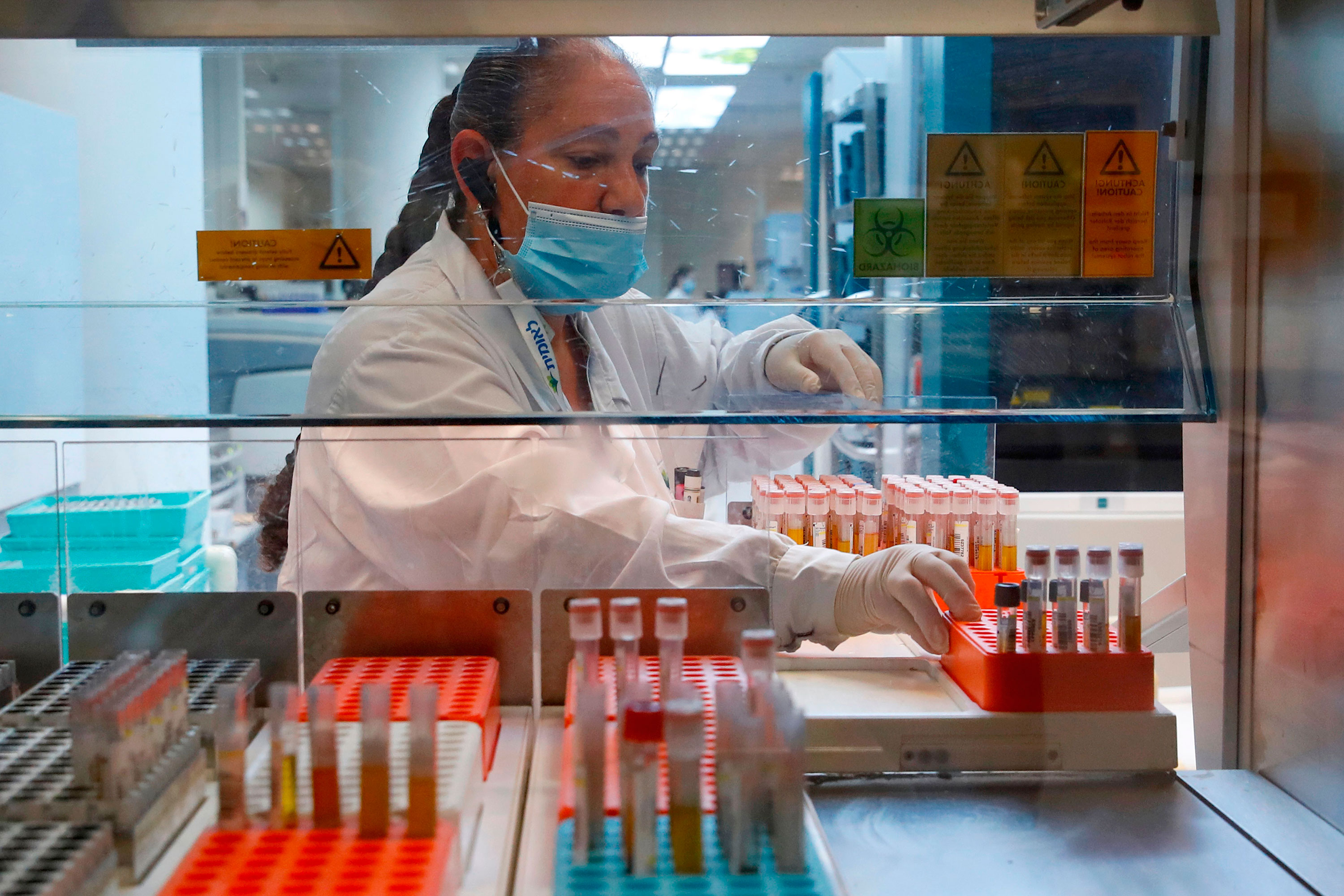 A lab technician sorts blood samples for Covid-19 serological tests at the Leumit Health Services laboratory on July 16 in Or Yehuda, Israel. Jack Guez/AFP/Getty Images
A lab technician sorts blood samples for Covid-19 serological tests at the Leumit Health Services laboratory on July 16 in Or Yehuda, Israel. Jack Guez/AFP/Getty ImagesIt is “very important” to get quick results from coronavirus tests in order to implement the public health measures that are needed to control Covid-19, World Health Organization officials said at a press conference in Geneva on Monday.
“It’s very important that when you have a test that is done, that you have the answers to that test quickly,” said Maria Van Kerkhove, WHO’s technical lead for coronavirus.
Unfortunately, she said, there are many parts of the world where it takes quite a long time to get test results back.
“We need individuals to know if they have this virus, so that we know which actions need to be taken,” Van Kerkhove said.
Once someone has been confirmed to be infected with the virus, whether they have symptoms or not, they need to be isolated – and knowing that they are infected means that contact tracing can be carried out.
“This is what breaks chains of transmission,” Van Kerkhove said. “If we have results back in four or five days, even longer, that is not going to help us.”
Having rapid tests in development is a positive thing and will help control efforts, she said.
Van Kerkhove also pointed out that WHO teams are working with their partners across the globe to quickly evaluate rapid tests to see how well they perform, and that they give accurate results.
Dr. Mike Ryan, executive director of WHO’s Health Emergencies Programme, reiterated the importance of quick test results.
“Getting the time from testing to confirming the status of the patient is the single most important thing,” he said. “There’s no point having a test result a week later, when the public health action is late.”
In places where there is limited capacity in laboratories, Ryan said, “You must focus on trying to detect suspect cases, confirming those cases, isolating those cases, quarantining contacts, and … taking all of the measures necessary.”
He called this the most efficient use of testing at the current time.
Vietnam reports 21 new coronavirus cases
From CNN's Sophie Jeong in Seoul and CNN's Hira Humayun
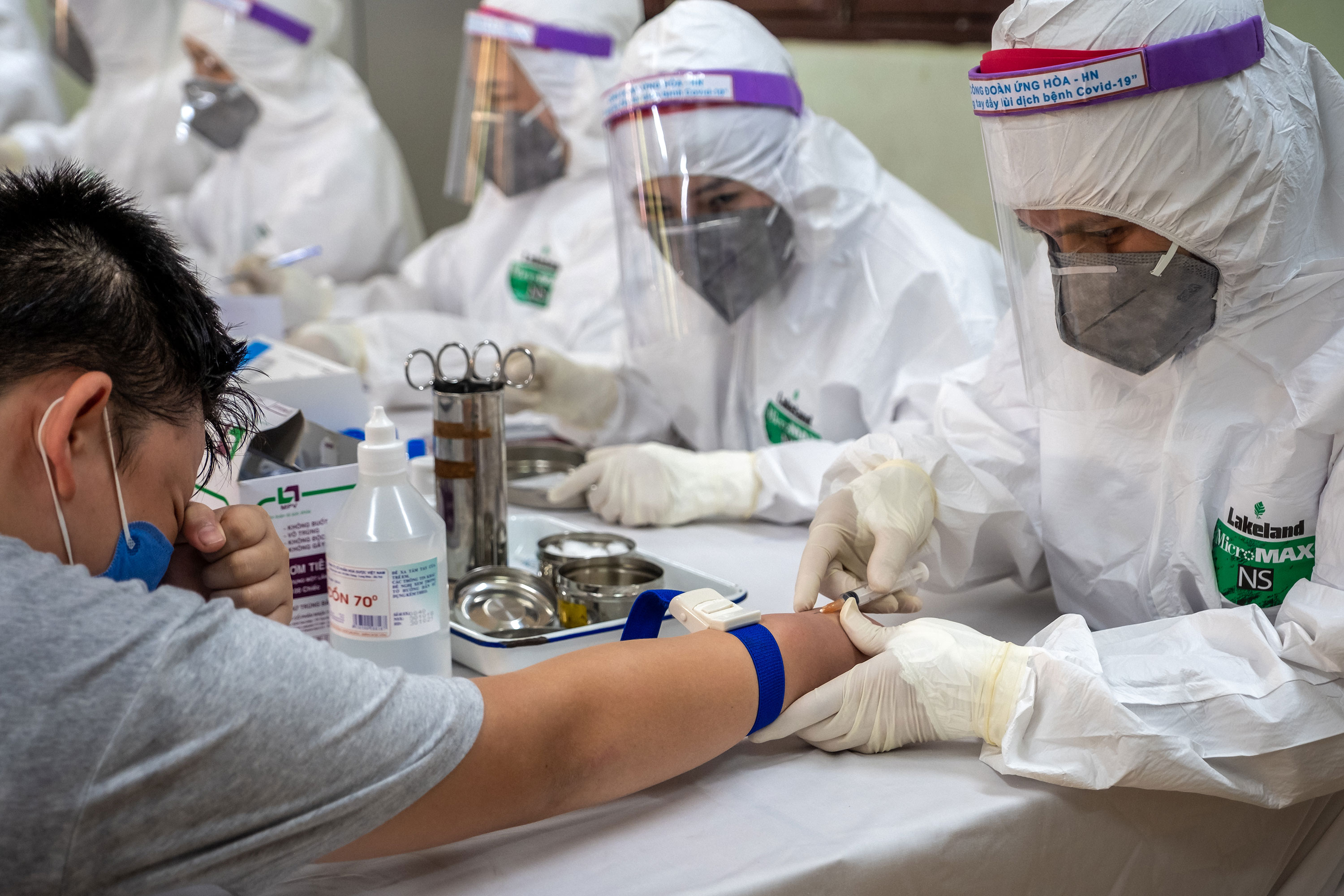 Medical specialists collect blood samples for a coronavirus rapid test on July 31 in Hanoi, Vietnam. Linh Pham/Getty Images
Medical specialists collect blood samples for a coronavirus rapid test on July 31 in Hanoi, Vietnam. Linh Pham/Getty ImagesVietnam reported 21 new coronavirus cases on Monday afternoon, bringing the country's total number of confirmed cases to at least 642, according to Chinhphu, the official government newspaper.
At least 15 of the 21 new cases were found in the resort city of Da Nang, while six cases were found in the nearby province of Quang Nam, Chinhphu reports. All of them are linked to the Da Nang Hospital, which is one of the three medical facilities being placed under lockdown.
A total of 103,268 people who had close contact with patients or came from pandemic-hit areas are now under quarantine nationwide, according to the state-run Vietnam News Agency (VNA).
Vietnam's testing capacity has been double compared to the peak period in April, acting Minister of Health Nguyen Thanh Long said, according to Chinhphu.
Covid-19 fatality ratio of 0.6% "may not sound like a lot, but it is quite high," WHO expert says
From CNN Health’s Naomi Thomas
Although the infection fatality ratio – or, how many people who are infected with Covid-19 die from it – sounds low, it is actually “quite high,” especially when compared with other pandemics, according to officials at the World Health Organization.
There are different ways that mortality can be calculated, and at this point, many groups are looking at the infection fatality ratio – which is the number of deaths among all the people who have been infected, Maria Van Kerkhove, WHO’s technical lead for coronavirus response, said at a press briefing in Geneva on Monday.
“Right now, we don’t know how many people have been infected because there are challenges with surveillance in detecting every single one of the cases, and certainly there are many unrecognized cases,” Van Kerkhove said.
While there are challenges, Van Kerkhove said that some studies have estimated the infection fatality ratio at 0.6%. That “may not sound like a lot, but it is quite high,” she said.
We know that mortality increase with age, and among people with underlying conditions, she said.
“We must do everything that we can to prevent ourselves, and those individuals, from getting infected,” Van Kerkhove said.
Dr. Mike Ryan, executive director of WHO’s Health Emergencies Programme, put some perspective on the 0.6% infection mortality rate, saying “that 0.6% is just over 1 in 200 people infected, potentially dying.”
He did say that this was hugely skewed by age, with the risk being much higher in older ages groups.
Ryan compared this number with the 2009 H1N1 pandemic, where “it was more like 1 in 10,000 or 1 in 100,000,” he said. “But when you think 1 in 200 versus 1 in 10,000 or 1 in 100,000, you get a sense of just how more deadly this virus is in communities.”
This points to the fact, he said, that everyone should try to avoid getting infected.
“I hope if we focus on that exposure reduction, infection reduction, then we will be talking about mortality going down,” he said.
Congress is nowhere near a stimulus deal. Here's the latest on the negotiations.
From CNN's Phil Mattingly
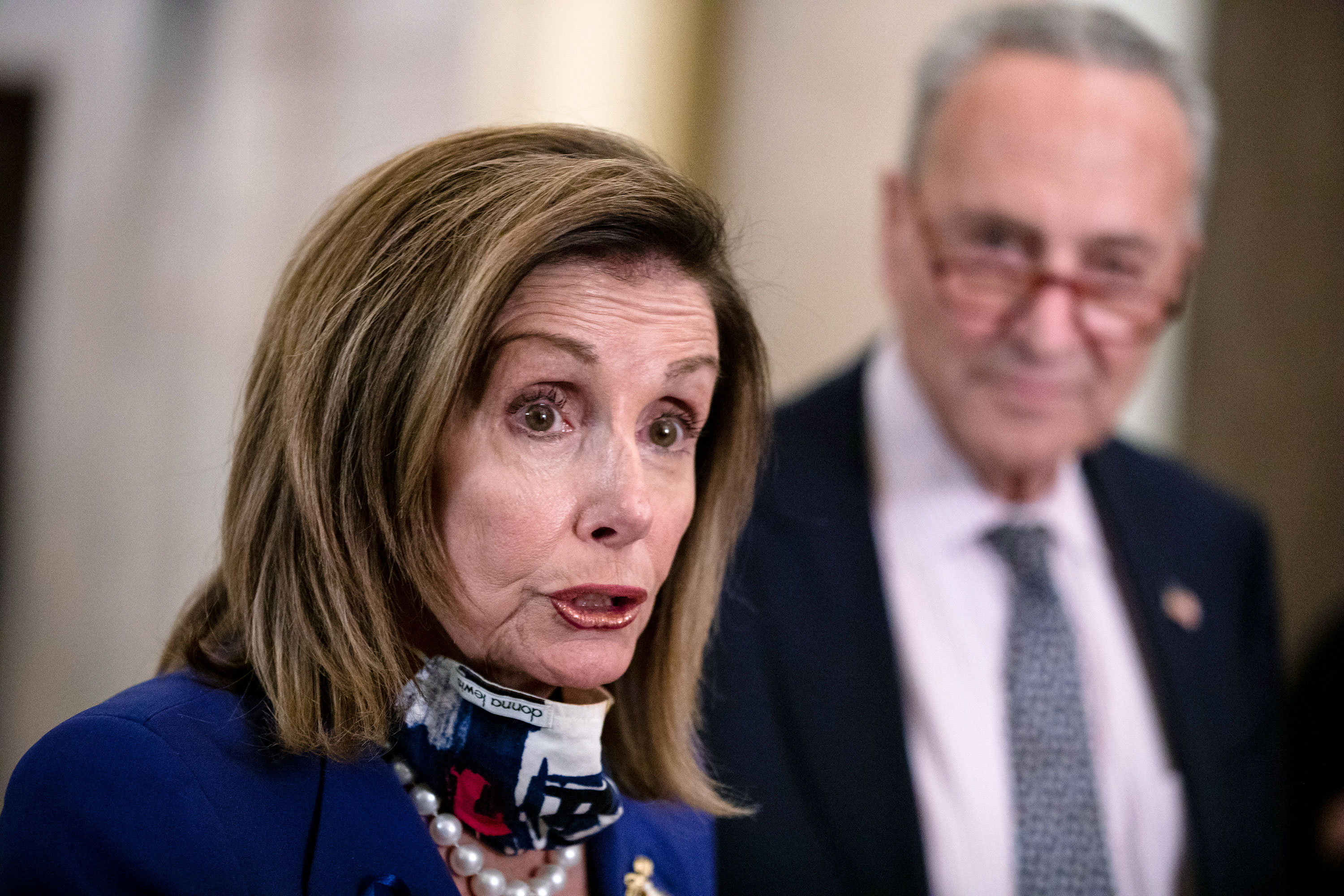 Speaker of the House Nancy Pelosi and Senate Minority Leader Chuck Schumer speak to reporters following a meeting with U.S. Treasury Secretary Steven Mnuchin and White House Chief of Staff Mark Meadows on July 30 in Washington, DC. Samuel Corum/Getty Images
Speaker of the House Nancy Pelosi and Senate Minority Leader Chuck Schumer speak to reporters following a meeting with U.S. Treasury Secretary Steven Mnuchin and White House Chief of Staff Mark Meadows on July 30 in Washington, DC. Samuel Corum/Getty ImagesKey deadlines on extending a federal eviction moratorium and federal unemployment benefits have come and gone. Yet lawmakers and the White House, sources say, are as far apart as they've ever been in talks on the next emergency aid package.
As one person involved told CNN on Sunday night: "No clue how we get this done at this point. Just so much outstanding."
Here's what you need to know about the stimulus negotiations:
Bottom line: Negotiators on both sides emerged from a three-hour-plus meeting on Saturday with by far the most positive words about where things stood. What that really underscored was just how much of a mess these talks have been. The meeting was productive because negotiators left with a better understanding of the full scope of disagreements (and areas of potential agreement), according to two sources. Not because they'd made headway toward an actual deal.
What to watch: Treasury Secretary Steven Mnuchin and White House chief of staff Mark Meadows will be back on Capitol Hill to meet with Speaker Nancy Pelosi and Senate Democratic Leader Chuck Schumer.
The framing: To understand why the two sides remain so far apart, it's worth comparing how each is framing the scale of the crisis. Mnuchin, during the talks over the initial $2.2 trillion CARES Act, dismissed concerns about deficits due to historically low borrowing costs and the urgency of the moment. That has shifted — on Sunday he made a point of noting concerns about adding to much to the national debt in the next round.
This, on the other hand, was how Pelosi framed things in a letter to her House Democratic colleagues on Saturday night:
"All parties must understand the gravity of the situation in order to reach an agreement that protects Americans' lives, livelihoods and the life of our democracy."
There are a large number of policy differences here, but the biggest issue throughout the first week-plus of real negotiations has been the lens through which the two sides view the scale of the current crisis. And until that starts to merge, at least somewhat, there is no deal to be had.
The timing: The policy deadlines, at least up to this point, didn't spark a deal. The Senate is scheduled to leave for August recess at the end of this week, but there's zero sense something will come together before then. Neither side wants to leave town for the month without reaching an agreement, but at this point, that agreement —and then the process of actually getting it through both chambers — is a long way off.
"I'm not optimistic that there will be a solution in the very near term," Meadows said on CBS's "Face the Nation."
WHO official to US residents: "Be part of this fight with us"
From CNN Health’s Naomi Thomas
World Health Organization officials on Monday addressed remarks made by White House coronavirus response coordinator Dr. Deborah Birx Sunday that the Covid-19 epidemic was entering a new phase in the United States. Birx said that the country could still turn things around, and that the state-based planning and implementation seemed to be the right path.
This acceleration was shown in the Southern states, and there are signs in other more central states that the acceleration may be occurring, Ryan said.
“I think they were taking a very prudent step in warning all states to really reexamine exactly where they were in the pandemic, to implement all of those comprehensive measures,” he said. “And I think those lead scientists are laying out exactly what they feel needs to happen in order to suppress this and getting this virus back to the box.”
From what he has seen from reports, Ryan said it is also prudent to be “stepping back some of the measure of reopening, and taking a step back and trying to reset in certain areas back to an earlier stage of virus control.”
Ryan said that the intensity of transmission in many countries means that it is going to take a huge effort in terms of personal and community behavior to suppress it.
“It is not our job to tell the US what it should be doing at sub-national level. The state-based planning and implementation guided by the national scientists seems to be the right path,” he said. “The difficulty for us all is sometimes we know the right path; the difficulty is choosing to walk it.”
Maria Van Kerkhove, WHO’s technical lead for coronavirus response, said, “The United States can turn this around. … We know that, we have seen this in many, many countries that have applied this comprehensive approach."
Van Kerkhove appealed to everyone in the US to follow guidance.
“Stay at home if you’re asked to stay at home. Wear a mask if you’re asked to wear a mask,” she said. “Be part of this fight with us. And we know that you can turn it around.”
French prime minister urges citizens not to let guard down in fight against Covid-19
From CNN's Pierre Bairin in Paris and Sharon Braithwaite in London
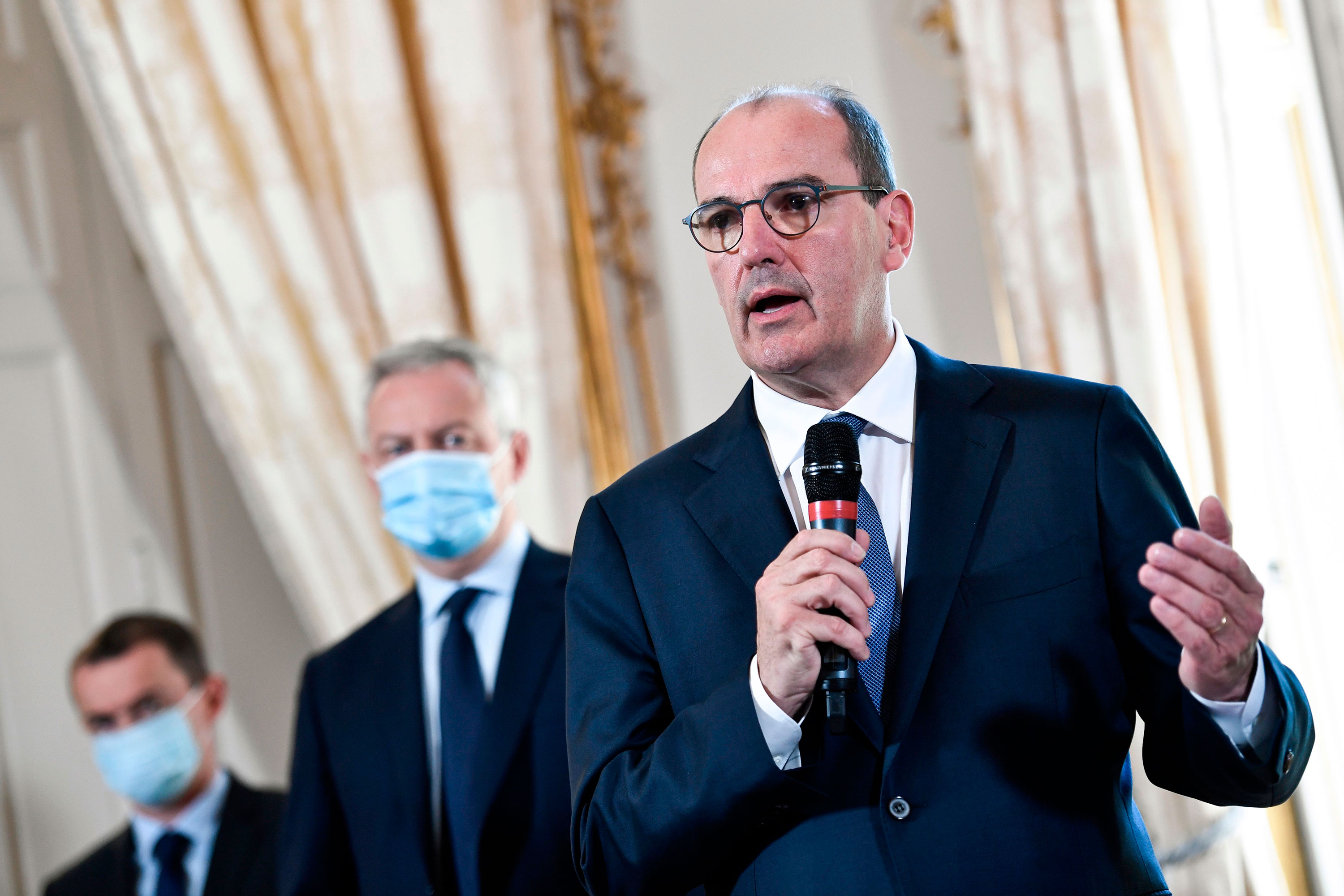 French Prime Minister Jean Castex speaks during a meeting on July 30 in Paris. Stephanie de Sakutin/AFP/Getty Images
French Prime Minister Jean Castex speaks during a meeting on July 30 in Paris. Stephanie de Sakutin/AFP/Getty ImagesFrench Prime Minister Jean Castex urged people not to let guard down in the fight against coronavirus, after an increasing number of infections in the country.
“I call on every Frenchwoman, every Frenchman, every person to remain very vigilant, because the fight against the virus, the fight against this disease, relies of course on the State, of course on local communities, of course, on all institutions that are mobilized, but also relies on each and every one of us,” he added.
Coronavirus "extraordinarily widespread," Birx warns
From CNN's Veronica Stracqualursi
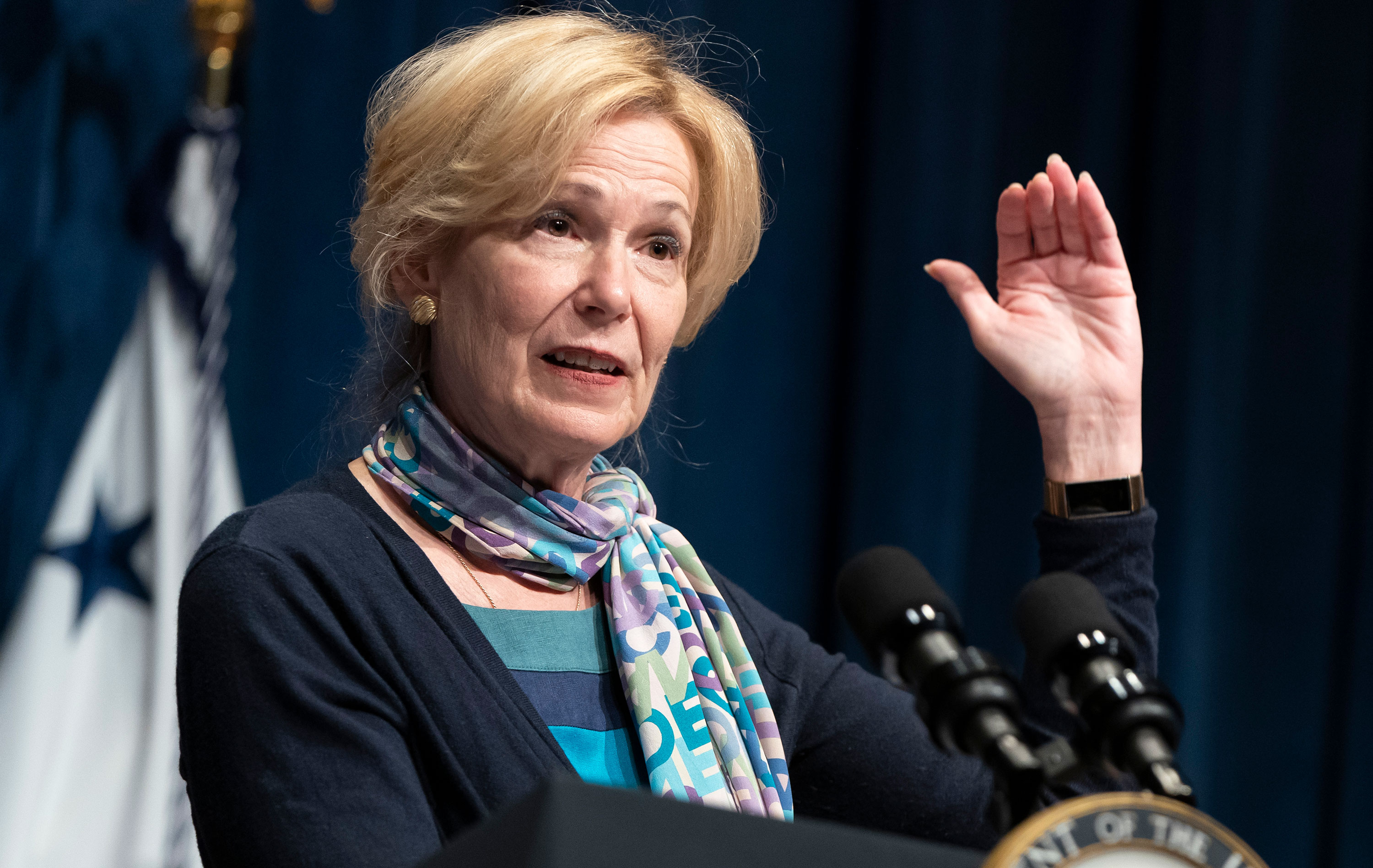 Deborah Birx speaks after a White House Coronavirus Task Force briefing on June 26, in Washington, DC. Joshua Roberts/Getty Images
Deborah Birx speaks after a White House Coronavirus Task Force briefing on June 26, in Washington, DC. Joshua Roberts/Getty ImagesDr. Deborah Birx on Sunday said the US is in a new phase in its fight against the coronavirus pandemic, saying that the deadly virus is more widespread than when it first took hold in the US earlier this year.
Birx stressed that Americans need to follow health recommendations, including wearing a mask and practicing social distancing.
"To everybody who lives in a rural area, you are not immune or protected from this virus," Birx said. "If you're in multi-generational households, and there's an outbreak in your rural area or in your city, you need to really consider wearing a mask at home, assuming that you're positive, if you have individuals in your households with comorbidities."
"This epidemic right now is different and it's more widespread and it's both rural and urban," she added.
A new ensemble forecast, published by the US Centers for Disease Control and Prevention, projects more than 173,000 American deaths by August 22, and former US Food and Drug Administrator Dr. Scott Gottlieb warned on CNBC last month that the coronavirus death toll could double to 300,000 deaths by the end of the year, if the country doesn't change its trajectory.
On Sunday, Birx would not give a projection of how many deaths the US would see by the end of year, but she said a death toll largely depends on southern and western states to maintain and accelerate their mitigation efforts. Those states have become hot spots for the virus.
"It's not super spreading individuals, it's super spreading events and we need to stop those. We definitely need to take more precautions," Birx told Bash.
Asked if it was time to reset the federal government response to the pandemic, Birx said, "I think the federal government reset about five to six weeks ago when we saw this starting to happen across the south."
Meanwhile, more than 4.6 million Americans have been infected and at least 154,859 have died from coronavirus, according to Johns Hopkins University data. California leads the country in total cases, followed by Florida and Texas.
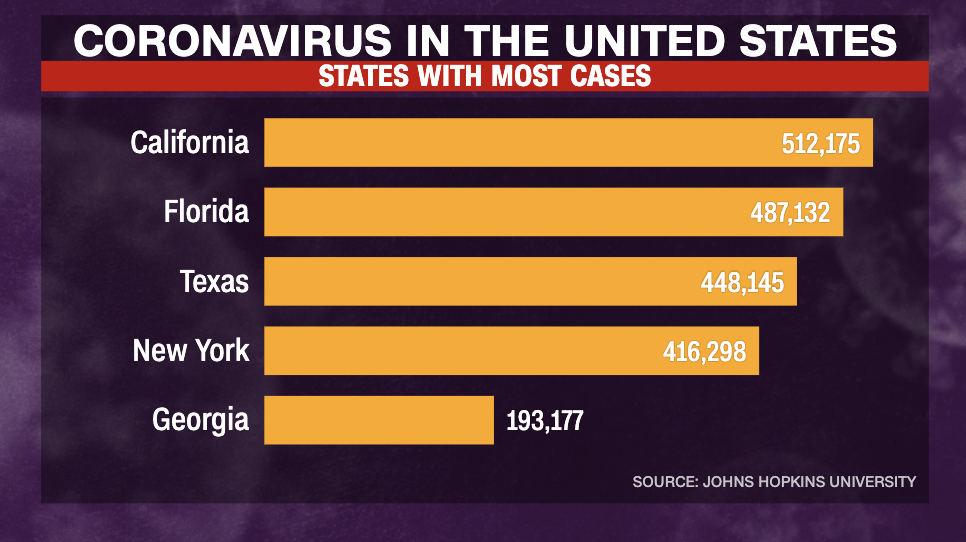

 5 years ago
659
5 years ago
659 

